The Infrastructure Prize
for Sociology
The Infrastructure Prize for Sociology honors substantial infrastructures that advance sociological knowledge. The prize is rewarded with 10.000 EUR. The Infrastructure Prize for Sociology is awarded by an international Selection Committee composed of the Board of Directors, the Board of Trustees and two additional members from other world regions.
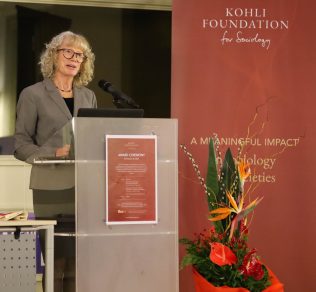
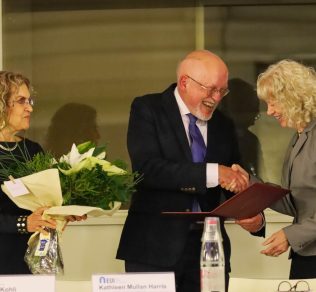
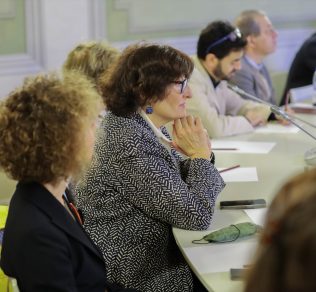

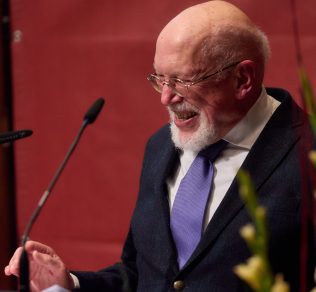
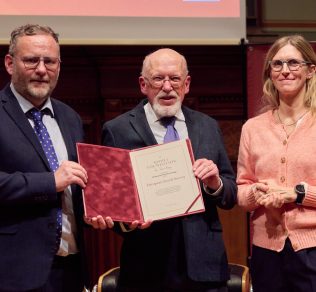



Nominees
The nominee must have made a substantial impact on infrastructures that advance sociological knowledge. Such infrastructures can serve for data generation (e.g., large cross-national surveys), data preservation (e.g., archives), knowledge dissemination (e.g., learning platforms), fundamental research (e.g., setting up research institutes), or knowledge communication (e.g., science journalism). Persons, projects or organizations can be nominated. The nominee is expected to deliver an address at the Award Ceremony to be held in alternate years at the Berlin Social Science Center (WZB) and the European University Institute (EUI, Florence).
Nominations
The Kohli Foundation for Sociology is accepting international nominations for The Infrastructure Prize for Sociology on an ongoing basis. In addition, we send out a call for nominations each year. A nomination can be submitted by a scholar based at any institution of higher learning and research (University, research institution, Academy of sciences). Self-nominations and posthumous nominations are not accepted. To diversify our laureate pool, the Kohli Foundation particularly welcomes nominations for women and scholars belonging to academically underrepresented groups. The nominations are confidential and should not be shared with the nominee prior to or after their submission.
Nomination Materials
The nominations must be written in English and should include a short summary (150 words) of your nomination and a full nomination (of about 1-2 pages) including a description of the activity of the person/project/institution as well as a justification of how this infrastructure advances sociological knowledge. Nominations from previous years are kept on file and considered every year. The Selection Committee reserves the right to request follow-up documents if deemed necessary.
Important dates
16 MARCH 2025
Deadline for the consideration for the Infrastructure Prize for Sociology 2025
APRIL 2025
Meeting of the
Selection Committee
MAY 2025
Notification
of the Prize Laureate
NOVEMBER 2025
Award Ceremony at the EUI (Fiesole/Florence)
Infrastructure Prize for Sociology 2024
The second Infrastructure Prize for Sociology was awarded to the European Social Survey, represented by Rory Fitzgerald, for their continuous monitoring of key social and political issues that has become indispensable for tracking change across European societies.
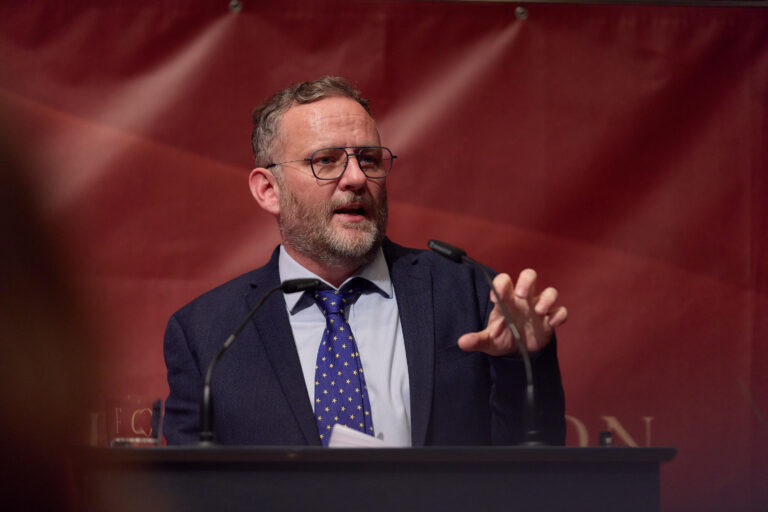
The European Social Survey (ESS) is a pan-European research infrastructure providing freely accessible data for academics, policymakers, civil society and the wider public. It was awarded European Research Infrastructure Consortium (ERIC) status in 2013. The ESS is an academically driven cross-national survey that has been conducted across Europe since its establishment in 2001. Every two years, interviews are conducted with newly selected, cross-sectional samples in around 30 countries on a wide range of subjects.
With its European focus and excellent accessibility, the ESS is one of the outstanding infrastructure projects for sociology and related fields.
Infrastructure Prize for Sociology 2023
The first Infrastructure Prize for Sociology was awarded to Kathleen Mullan Harris, representing the Add Health Initiative, for her pivotal role in creating a unique longitudinal data set that allows to study individuals and their families in their social, behavioural, and biological dimensions across the life course.
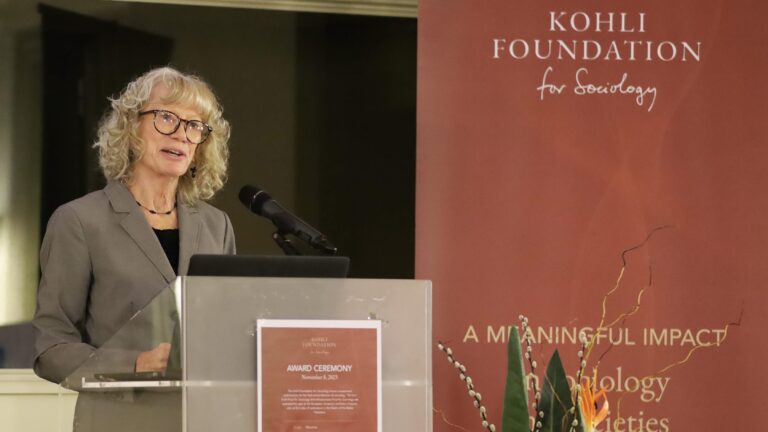
Add Health is a multilevel, longitudinal, nationally representative study of over 20,000 individuals who have been followed from adolescence through mid-adulthood, and it is one of the most important, innovative, and well-utilised data sets in the social sciences.
Kathleen Mullan Harris is James E. Haar Distinguished Professor of Sociology and Adjunct Professor of Public Policy. She has secured upwards of $100 million dollars in competitive research grants from the National Institutes of Health to run Add Health and played a crucial role in transforming Add Health into a landmark data infrastructure.




